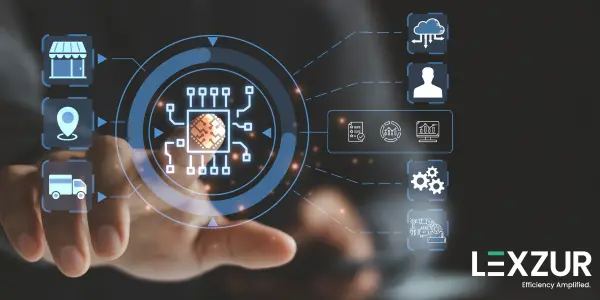Your Guide to the Best Litigation Management Software for Law Firms
Litigation can be complex and time-consuming for law firms, with multiple cases to manage, deadlines to meet, and documents to handle. This is where litigation management software comes in handy. It can help law firms streamline workflow, improve communication, and increase efficiency. However, with so many available law practice management software for law firms, choosing the best litigation management software for your law firm can be overwhelming. This blog will provide a comprehensive guide to law firms’ best litigation management software. We will cover the features, benefits, and tips to help you make an informed decision that meets your firm’s unique needs. Whether you are a small or large law firm, this guide will help you find the perfect litigation management software to streamline your legal operations and grow your business.
What is Litigation Management Software?
Litigation management software is a powerful administrative tool that helps legal practitioners manage their litigation matters workflows. It streamlines the management of case details like litigation description, court, the opposition party, involved lawyers, dates, documents, communications, expenses, invoices, etc. The system helps law firms and in-house legal teams access litigation information quickly, look up the status of a case and the lawyers assigned, and manage all aspects of their practice. The right litigation case management software can help streamline processes, improve documentation, and increase efficiency within a law firm. It can also help with better organization, collaboration, and cost savings.
Who uses litigation management software?
Litigation management software is used by many different types of legal professionals, from solo practitioners to large firms and corporations. The software is beneficial in streamlining processes, as it automates many tasks that would otherwise take a lot of time and effort. With the help of litigation management systems, legal professionals can save time, money, and effort by streamlining their processes and working more efficiently.
As mentioned above, diverse legal industry professionals, including lawyers, paralegals, legal assistants, law firms, corporate legal departments, and other companies, use litigation management software.
- Legal assistants and paralegals use litigation management software to manage case information, including documents, pleadings, and correspondence. They also use the software to track deadlines, court dates, and other important dates related to the case.
- Lawyers and law firms use litigation management software to manage their workflow and track their time spent on various tasks. This allows them to bill clients accurately and efficiently.
- Corporate legal departments use litigation management software to manage their legal matters, including disputes, contracts, and compliance. This allows them to track legal expenses and manage their legal risks effectively.
Benefits of Using Litigation Management Software
Using litigation management software can benefit law firms and individual lawyers in various ways. It helps streamline the process of organizing records and ensures that documentation is accurate and consistent. By centralizing data, lawyers have easier access and retrieval of information, which leads to improved communication. Additionally, using litigation management software can help reduce costs associated with paperwork and administrative tasks. It also allows lawyers to organize their cases better and collaborate with other parties involved in the case. With all the information in one centralized platform, lawyers can use helpful features such as automated case reminders, bulk document processing, and real-time updates. All these benefits lead to increased efficiency and a higher level of productivity for law firms.
Increased Efficiency
Litigation management software provides lawyers and legal professionals with increased efficiency by streamlining their workflow. The powerful tools available with platforms like Lexzur let users organize their case information in one place, manage deadlines, delegate tasks, and communicate with clients quickly and efficiently. By utilizing these features, lawyers can more quickly access and analyze information, meaning they can spend less time on administrative tasks and more time providing legal services to their clients. Additionally, with automation tools available on the litigation management module, users can automatically generate documents and reminders to ensure that nothing falls through the cracks. This level of automation helps lawyers eliminate the need for manual data entry and reduces the time spent on mundane tasks.
Improved Documentation
Litigation management software makes maintaining accurate and complete documentation on litigation cases easier. This improved documentation helps lawyers and other legal professionals access, review, and update case-related information, such as court documents, contracts, and research materials. For example, Lexzur is a cloud-based legal practice management solution allowing users to store and access documents in the cloud from anywhere securely. The system also provides a range of document management tools, including electronic signatures, which streamline the process of signing a document without downloading, printing, or scanning it. It also allows users to search for documents and access them from any device quickly. Having easy access to accurate documentation helps lawyers to save time and improve their efficiency in managing complex litigation cases.
Cost Savings
Litigation management software can provide law firms with significant cost savings. Law firms can save time and money with automated processes, improved document organization, and increased efficiency. By streamlining workflow processes, legal firms can reduce their need for additional staff and equipment. Furthermore, practices can save money on document storage costs by leveraging litigation management software’s cloud-based storage capabilities. Litigation management software’s cost savings will help firms improve their bottom line.
Better Organization
Better organization is a crucial benefit of litigation management software. Law firms can easily streamline their processes, organize case files and documents in one place, and ensure that data is up-to-date and easily accessible. This helps to eliminate redundancies and ensure that cases are managed efficiently. Litigation management software enables law firms to track cases and tasks, assign deadlines, and set reminders for upcoming events. This helps to ensure that all tasks are completed on time, and nothing falls through the cracks. Litigation management software is a comprehensive solution for law firms looking to stay organized and maintain high efficiency.
Enhanced Collaboration
Litigation management software can provide law firms with enhanced collaboration capabilities. Through collaboration, firms can share documents and other information in real-time, streamlining the legal process. Documents can be securely stored on the cloud, allowing multiple users to access them quickly and easily. This type of collaborative platform also allows for more accessible communication between teams, helping to ensure that all parties involved are on the same page. Additionally, this type of software often comes with features such as discussion boards, activity feeds, and project-tracking tools, which can help teams stay organized and up-to-date on their cases.
Understanding the Different Types of Litigation Management Software
To make the right decision for your firm, it is essential to understand the differences between each type of software. For instance, Clio offers a web-based solution allowing you to quickly manage documents and share them with clients. MyCase is another cloud-based software designed to streamline some aspects of managing cases, billing and payment.
Factors to Consider When Choosing Litigation Management Software
With so many different types of litigation management software on the market, knowing which one is right for your firm can take time. Several factors must be considered when selecting the right litigation management software for your law firm.
- List your needs: consider the software type that best suits your law firm’s needs. Different types of litigation management software offer different functionality and features, so it is essential to ensure that you choose a product that will meet your specific requirements.
- Consider the cost: you should consider the cost of the software and any associated fees or maintenance costs.
- Security levels: be sure to consider the security measures in place for the software and how easily it can be integrated into your existing systems.
- Customer Feedback: Review customer feedback and reviews regarding the software before purchasing.
By considering these factors, you can decide which litigation management software is best for you and your law firm.
Lexzur: The Best Litigation Management Software for Law Firms
Lexzur is a comprehensive law practice management software with advanced litigation management features covering everything legal practitioners need to manage litigation processes. Lexzur offers many hosting options, multilingual and configurable. Lexzur integrates with all other necessary tools and offers the highest security levels.












Leave a Comment